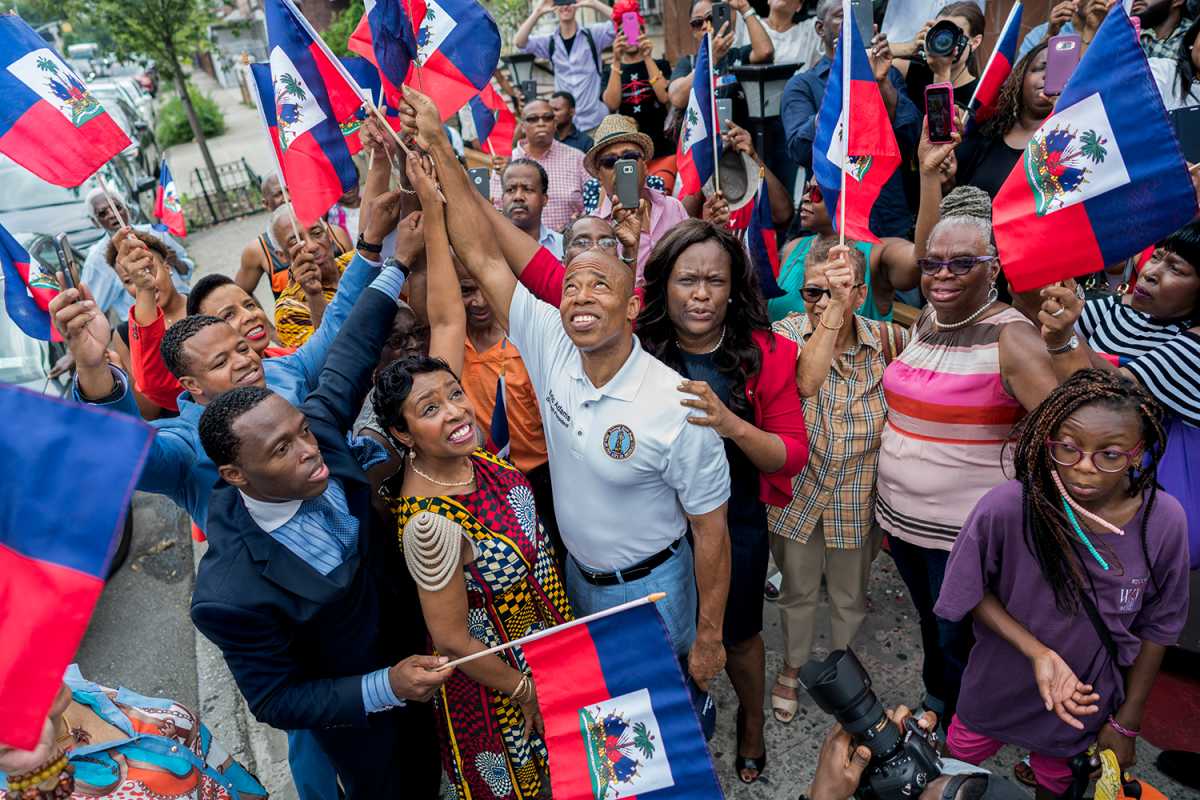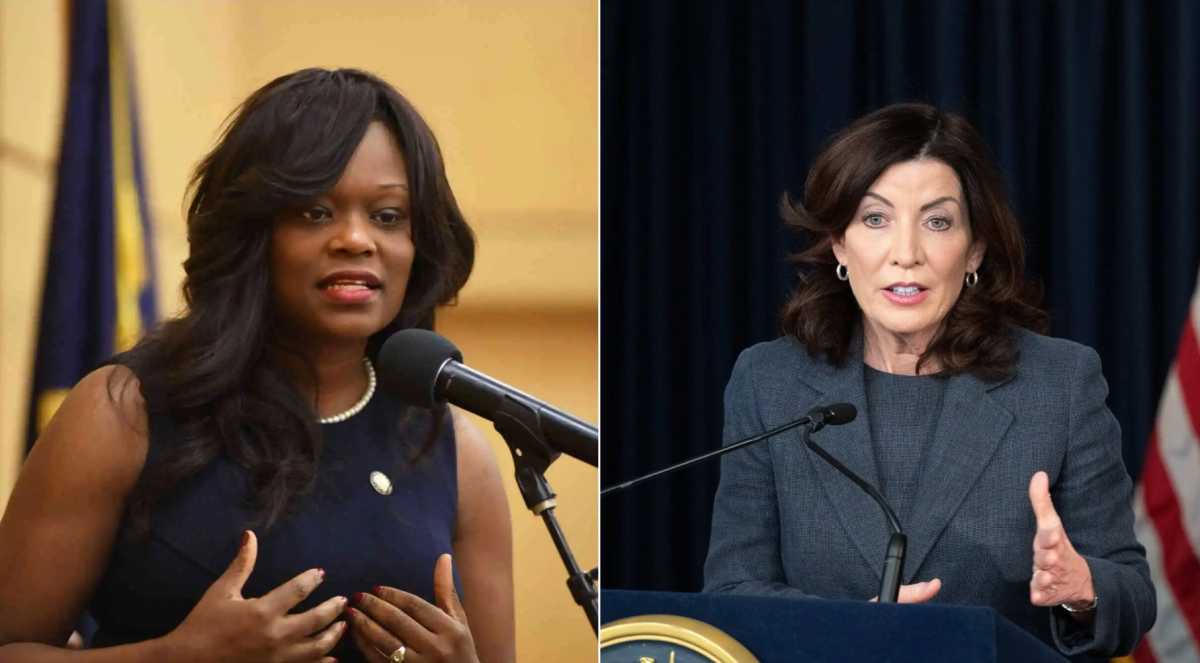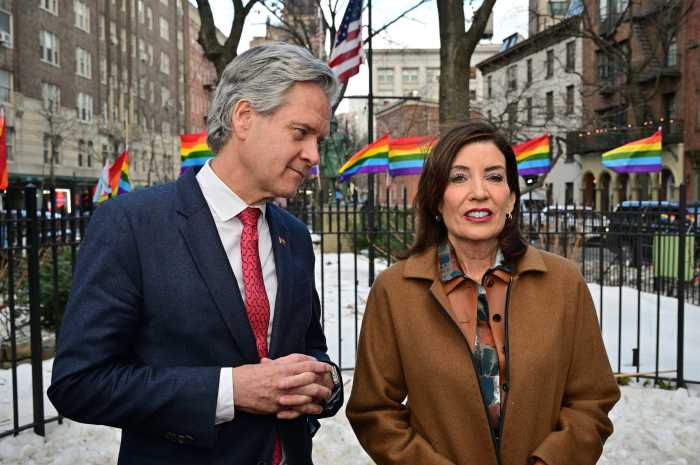Politicians and community members on Saturday celebrated a win for the Haitian community with the unveiling of Jean-Jacques Dessalines Boulevard in East Flatbush. Politicians who led the effort, however, were forced to defend the legacy of the man after whom the street is named.
The newly co-named boulevard runs along a two-mile stretch of Rogers Avenue, from Farragut Road to Eastern Parkway in Brooklyn’s recently-designated Little Haiti, and is named after Haiti’s revolutionary leader and first emperor.
Assemblymember Rodneyse Bichotte (D-Flatbush, Ditmas Park) who is of Haitian descent and fiercely advocated for the street co-naming, said Saturday, “They are trying to erase our history. Now with the street co-naming, tens of thousands will walk through the street in central Brooklyn and see, and utter, the name of John-Jacques Dessalines.”
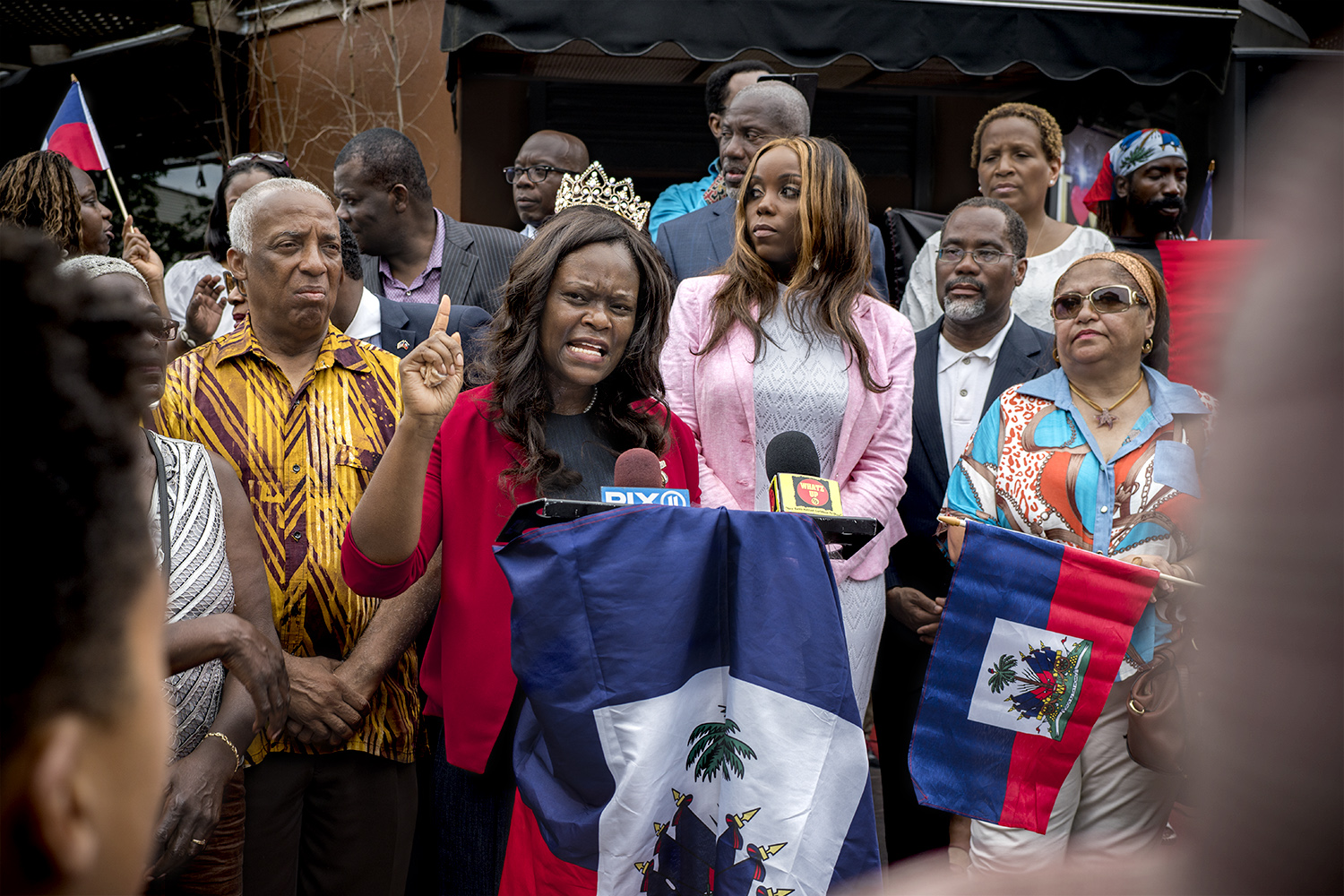
The unveiling attracted a crowd of jubilant supporters. After the string meant to pull off the paper covering the new street sign snapped, and a man from the crowd instead scaled the street post to remove the paper, politicians and community members alike erupted in cheers and together sang “La Dessalinienne,” Haiti’s national anthem.
“For too long in our community there hasn’t been — particularly in our nation — a recognition of all of the contributions that have been made by longtime stakeholders in our community,” said U.S. Rep. Yvette Clarke (D-Crown Heights, Flatbush, Lefferts Gardens, Midwood, Sheepshead Bay, Brownsville), whose Brooklyn district includes the second largest Haitian population in the United States. “Today’s co-naming of Roger’s avenue is a historical naming, in that we are finally bringing to light in very tangible ways those contributions.”
Despite all the celebration, however, politicians were on the defense over the legacy of Jean-Jacques Dessalines.
“For some people, leaders that participate in a revolution are considered controversial,” said City Council Majority Leader Laurie Cumbo, (D-Fort Greene, Clinton Hill, Prospect Heights, Crown heights) who co-sponsored the street co-naming. “Part of it is educating people to an understanding of the times and understanding of the era, and an understanding of the fact that an oppressed people fought for their liberty, and it came with a cost.”
The cost Cumbo referred to, which critics have raised concerns over since the street co-naming was first introduced by Council Member Jumaane Williams (D-Flatbush, East Flatbush, Midwood) is the 1804 Haiti massacre. During that event, the Haitian army, under orders from Dessalines, killed 3000 to 5000 of Haiti’s remaining white population after the country’s liberation from France.
Once in power, Dessalines declared himself emperor, but was later killed by his own people in 1806.
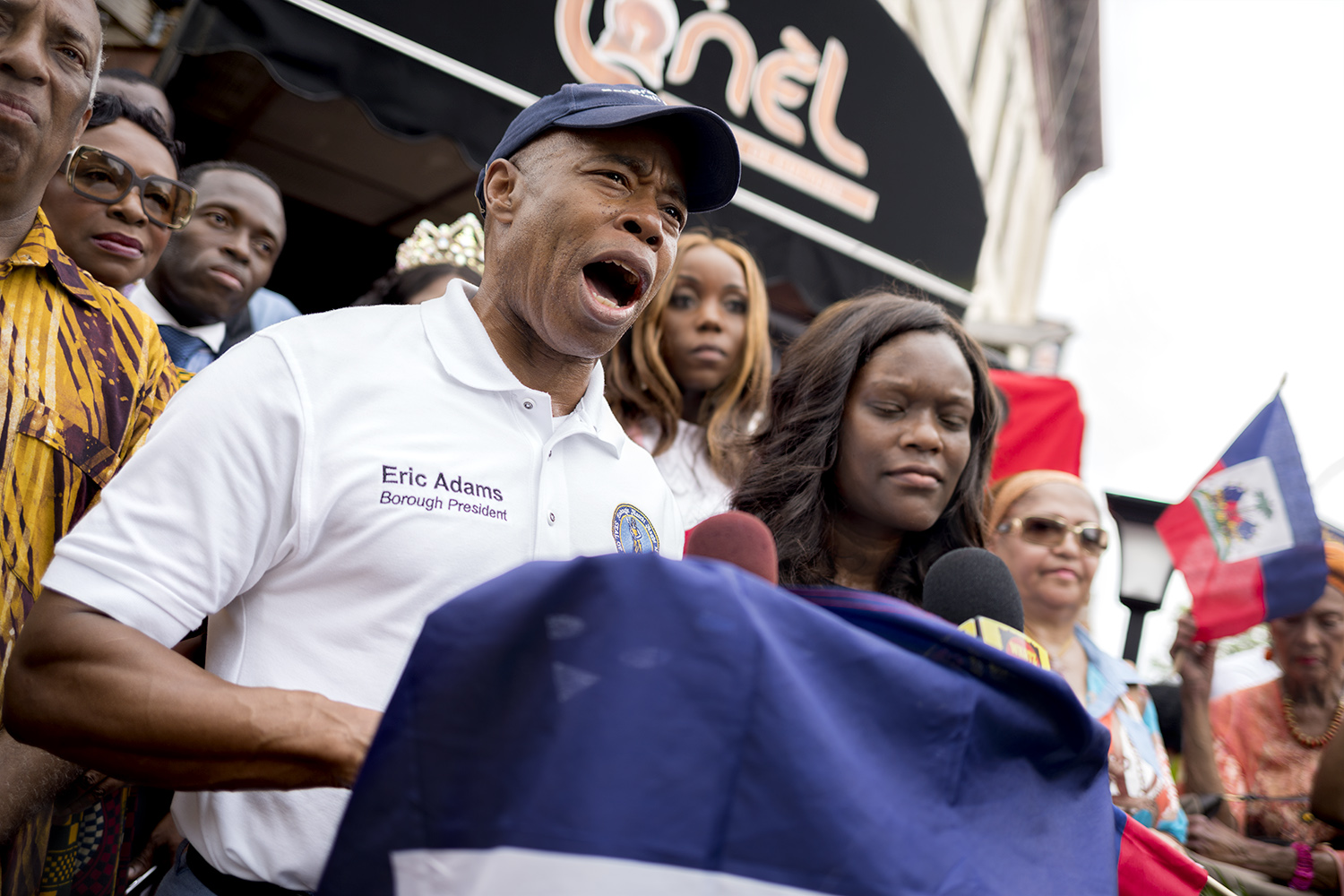
Bichotte said she thought Dessalines actions are commonly misunderstood. “People just had the wrong narrative,” Bichotte said. “They felt that, oh, he murdered people. But it was a revolutionary war fighting for freedom. And that’s what happens, people get murdered on both sides” Bichotte said.
Bichotte said that she and other supporters created what she believed to be the correct narrative in order to get the street co-naming approved.
“We had to kind of make sure we put the right narrative in so people know he was a hero and not a ‘massacre-er’ like some of the other people, like Christopher Columbus,” Bichotte said.
Explaining the process for creating that narrative, Bichotte said, “We had to testify, we had news articles – wrote articles on it.”
Assemblymember Charles Barron (D-East New York) was straight to the point at the unveiling Saturday. “Brothers and sisters, there’s no man in history that we respect more than Dessalines. He handled business the right way. As a black panther, you know I love him,” Barron said.
“America, this street co-naming is a signal for you to pay Haiti their reparation,” Barron said. “France, how dare you have Haiti pay you reparation? You mess with us, we will Dessalines you today.” Photos by Tsubasa Berg
Check out the video:


